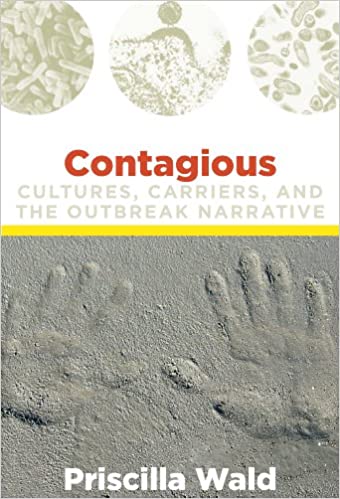Priscilla Wald will give an online lecture, “Contagious: The Outbreak Narrative, Coronavirus, and Why We Need to Change the Story,” on Wednesday, April 15.
Though the COVID-19 pandemic is an extraordinary event, its spread and our responses to it follow patterns that have consequences, according to Priscilla Wald, the author of “Contagious: Cultures, Carriers, and the Outbreak Narrative.”
Wald will discuss how scientific publications and the mainstream media respond to emerging diseases in a speaking engagement for Elon University audiences at 2 p.m. on Wednesday, April 15. The lecture will be broadcast online at https://duke.zoom.us/j/649568341. Wald is the R. Florence Brinkley Distinguished Professor of English at Duke University.
Modern media became more interested in emerging diseases following the appearance of HIV/AIDS in the 1980s. Scientific publications, news accounts, films and other media propelled an “outbreak narrative” that’s influenced the way we communicate about and respond to disease, according to Wald.
Katherine Johnson, assistant professor of public health studies, reached out to Wald for engagement with Elon’s community after reading an op-ed she wrote that was published in The Durham Herald-Sun on Feb. 20. That column pointed to the 1978 Declaration of Alma-Ata, an international agreement pledging a commitment to universal access to primary healthcare by 2000, and what such access — together with food, clean drinking water and shelter — would mean in preventing pandemics.
Johnson is looking forward to hearing Wald’s perspectives, and to inviting the community to think about how we can respond in ways that unite humanity rather than further divide it.
“COVID-19 is a reminder that we’re all in this together. It’s a global challenge, and it raises issues of enduring inequities,” Johnson said. “I hope we can reassert a shared sense of humanity.”



